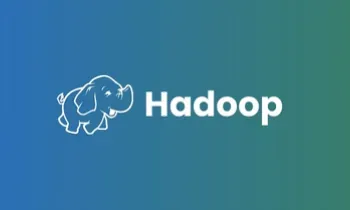
Hadoop
Course Overview
The Hadoop course is designed to provide participants with a thorough understanding of Hadoop, an open-source framework for distributed storage and processing of large datasets. Developed by the Apache Software Foundation, Hadoop allows for the management and analysis of massive amounts of data across a cluster of computers. This course covers the core components of Hadoop, including HDFS, MapReduce, and YARN, and equips participants with the skills to implement and manage Hadoop-based solutions effectively.
1. Develop skills to manage and analyze large-scale data using Hadoop.
2. Understand the architecture and components of the Hadoop ecosystem.
3. Learn best practices for deploying and optimizing Hadoop clusters.Learn data management skills with real experts, either in live classes with videos or without videos, whichever suits you best.
Description
This course begins with an introduction to Hadoop and its architecture, covering the Hadoop Distributed File System (HDFS), MapReduce programming model, and Yet Another Resource Negotiator (YARN). Participants will learn how to set up a Hadoop cluster, write and execute MapReduce jobs, and utilize Hadoop's ecosystem tools such as Pig, Hive, and HBase. The course also includes practical examples, hands-on projects, and real-world scenarios to reinforce theoretical concepts.1. Gain practical experience with hands-on Hadoop exercises.
2. Build and deploy real-world Hadoop projects that reflect industry practices.
3. Explore integration with other big data technologies and tools.Course Objectives
The primary objectives of the Hadoop course are as follows:1. Introduction to Hadoop: Provide an overview of Hadoop, its history, and its benefits for managing big data.
2. Hadoop Architecture: Explore the architecture of Hadoop, including HDFS, MapReduce, and YARN, and their roles in distributed data processing.
3. HDFS: Understand the Hadoop Distributed File System for storing and managing large datasets across a cluster.
4. MapReduce: Learn the MapReduce programming model for processing and analyzing large volumes of data in parallel.
5. YARN: Explore Yet Another Resource Negotiator for resource management and job scheduling in Hadoop clusters.
6. Pig: Introduce Apache Pig for scripting and processing large datasets with a high-level language.
7. Hive: Cover Apache Hive for querying and managing large datasets using SQL-like queries.
8. HBase: Learn about Apache HBase for real-time, scalable access to large datasets.
9. Data Ingestion: Discuss methods and tools for ingesting data into Hadoop, including Flume and Sqoop.
10. Performance Optimization: Teach strategies for optimizing the performance and efficiency of Hadoop clusters.
11. Security: Cover best practices for securing Hadoop environments and managing data privacy.
12. Deployment: Learn best practices for deploying and maintaining Hadoop clusters in production environments.Prerequisites
1. Basic understanding of data management concepts.
2. Familiarity with Linux/Unix command line.
3. Knowledge of Java programming language.
4. Experience with SQL or other query languages.
5. Understanding of distributed computing concepts.
6. Familiarity with data warehousing and ETL (Extract, Transform, Load) processes.
7. Prior exposure to big data technologies (optional but beneficial).Who Can Learn This Course
This course is suitable for a diverse range of individuals, including:1. Data Engineers: Professionals aiming to enhance their skills in big data management and Hadoop-based data processing.
2. Data Analysts: Individuals interested in analyzing and interpreting large datasets using Hadoop tools.
3. Data Scientists: Those looking to incorporate Hadoop for large-scale data analysis and machine learning projects.
4. IT Professionals: Professionals involved in managing and maintaining Hadoop clusters and big data infrastructure.
5. Students and Graduates: Individuals pursuing degrees in computer science, data science, or related fields with an interest in big data technologies.
6. System Architects: Professionals involved in designing and architecting systems that leverage Hadoop for big data solutions.
7. Project Managers: Individuals overseeing big data projects who need to understand Hadoop's capabilities and limitations.
8. Anyone Interested in Big Data: Enthusiasts curious about leveraging Hadoop for managing and analyzing large datasets.The Hadoop course is designed to cater to both beginners and individuals with some experience in data management, providing a solid foundation in Hadoop concepts and practical skills for working with big data.
Course Curriclum
Training Features
Comprehensive Curriculum
Master web development with a full-stack curriculum covering front-end, back-end, databases, and more.
Hands-On Projects
Apply skills to real-world projects for practical experience and enhanced learning.
Expert Instructors
Learn from industry experts for insights and guidance in full-stack development.
Job Placement Assistance
Access job placement assistance for career support and employer connections.
Certification upon Completion
Receive a recognized certification validating your full-stack development skills.
24/7 Support
Access round-the-clock support for immediate assistance, ensuring a seamless learning journey.
Upcoming Batches
Placed Students
Enroll now and join our alumni.
Explore More Courses
Enroll for : Hadoop
Start Date: 2024-10-01
Mentor: Working Professional
Duration: 3 Months
